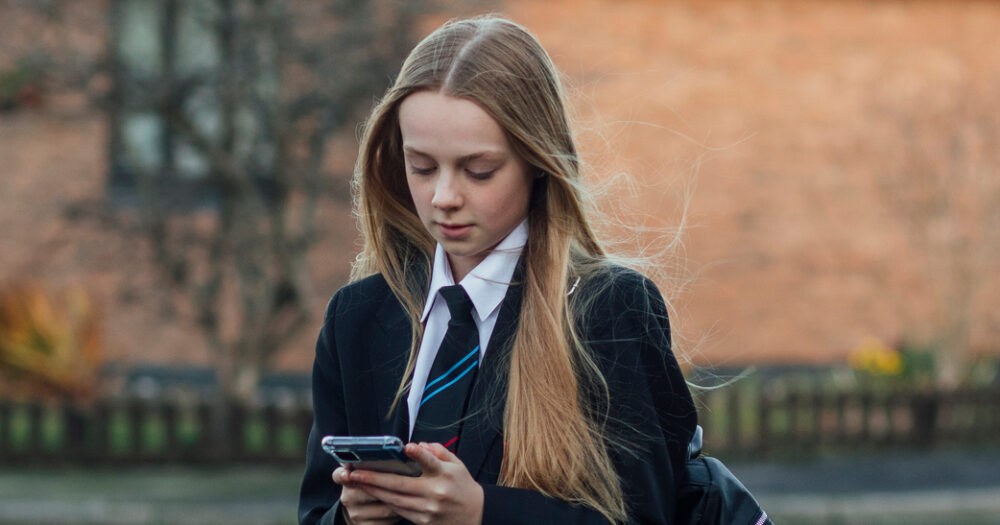To suggest that surging mental health problems in young people are the result of ‘ubiquitous’ smartphone use diagnoses the wrong problem and ignores the real and glaring issues young people are facing.
Nearly every mention of mental health in young people references the pandemic. Yes, they are more likely to spend longer online but much of that is a result of the loneliness and isolation they suffered during lockdown. Stopping there completely misses what is really driving the mental health crisis.
Good mental health is driven by three key factors: a reasonable level of control over your environment and choices, a strong and supportive community, and the ability to access positive experiences. Young people have seen all three decimated.
An absence of choice
For years, control over their environment all but evaporated. Stay home. Go to school. Learn online. Learn face-to-face. Don’t wear a mask. Now do. When to go for a walk, who to see, whether or not you can attend your nan’s funeral – all decisions made by remote adults.
With the psychological pressure that came with these decisions, it is hardly surprising that control-based mental health problems have exploded. What food goes into our bodies and what happens to them are some of the few things that remain in their power to control. Witness the rise in eating disorders and self-harm.
We see it in the unwillingness of some to attend school at all. We see it in their presence in strong online communities where they feel seen and heard. Maybe young people are just tired of being told what to do. Yet our response seems to be to make schools ever more draconian.
An absence of opportunity
Community life has also been radically altered. Entire year groups missed out on trips, end-of-year plays, graduation ceremonies, assemblies, sports fixtures, music events… The list goes on. And due to the cost-of-living crisis, schools have struggled to reestablish all kinds of norms which form that vital sense of community.
Half of schools are cutting back on trips. The arts are squeezed from the ‘catch-up’ curriculum. Is it any wonder young people turn to online communities or draw into themselves? This is exacerbated by the gutting of almost all youth services – including social and physical activities and access to help and support.
Loneliness and depression are not consequences of smartphone use; smartphone use is a logical response to the withdrawal of opportunities to take part in real, live activities. Working out how to ensure their phones stay in their bags isn’t rocket science.
An absence of optimism
Young people have also seen their quality of life decrease, their parents struggling to pay bills, keep jobs and provide necessities. Millions have been forced into poverty, with spiralling food bank use, homelessness and destitution.
Some 8,500 children are Covid orphans and 34,000 are estimated to be suffering with Long Covid. Many more suffer repeated sickness, schools reporting much higher rates of absence including from mass outbreaks of infections like scarlet fever.
Fewer young people are therefore able to participate in the positive events that are available. And we wonder why they are unhappier and more vulnerable to online harm than before.
All of these adversities disproportionately affect certain students. Those with SEND, for example, are much more likely to suffer poor mental health. For them, smartphones are often a lifeline. Many autistic students are simply unable to cope with the anxiety and stress caused by flip-flopping policy and a constantly changing landscape. They cannot return to a ‘normal’ because they have no memory of pre-pandemic norms. Many are accessing school through various types of online provision. All their social activity takes place online and their phones are their safe space.
Therefore, tackling the mental health crisis requires nothing short of investing in communities and in empowering and diverse learning experiences. And for a growing segment, it’s time to rethink what education looks like rather than taking away their one social connection.
Either way, the mobile phone ban isn’t just the wrong solution; it is a response to the wrong problem.











Your thoughts